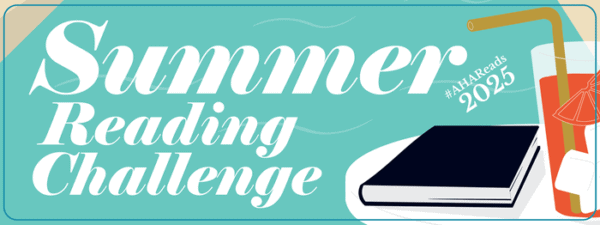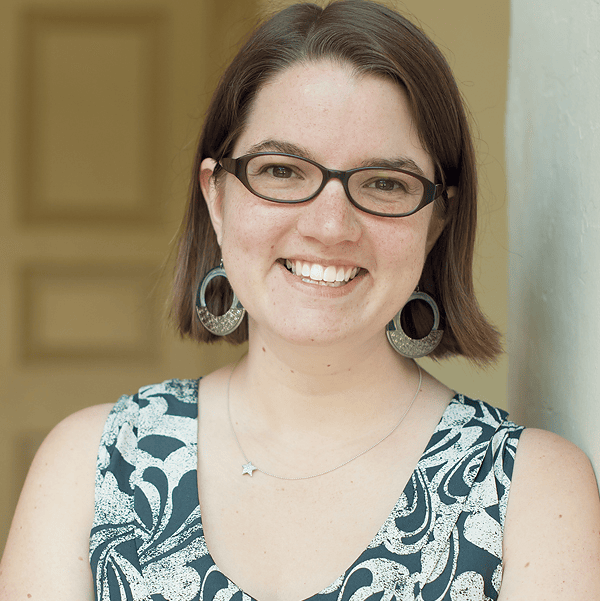The first month of the 2025 AHA Summer Reading Challenge has come to a close. We asked AHA members and staff to share with us what history they had read in June to fulfill tasks in #AHAReads, and we’ve compiled some of their responses.

Read a history of an event with a major anniversary in 2025.
Sarah Muncy (AHR managing editor) picked up The World She Edited: Katharine S. White at The New Yorker by Amy Reading in honor of The New Yorker’s centennial. White was one of the magazine’s earliest editors who helped shape the publication and the literary landscape of 20th-century New York.
The Korean War started 75 years ago, so Michael Ralston (Washington, DC) picked up General Matthew B. Ridgway’s The Korean War, “an excellent overview of the major thrusts, problems, and issues, including the then new concept of limited war and the role of the United Nations.”
Amanda Seligman (University of Wisconsin–Milwaukee) has decided to count writing for this first task, “since you have to read what you write, many times over.” She is working with colleagues on the final stages of a commissioned history of Glendale, Wisconsin, for that small city’s 75th anniversary.
Read a history of a resistance movement.
Patrick Sheridan (Univ. of Georgia) read about queer Cuban activism in the memoir Before Night Falls by Reinaldo Arenas, translated by Dolores M. Koch.
Alana Venable (AHR deputy managing editor) picked up Rebecca L. Davis’s Fierce Desires: A New History of Sex and Sexuality in America.
Read a history that uses material culture.
Debbie Ann Doyle (AHA meetings director) read Deborah Cohen’s Household Gods: The British and Their Possessions.
Alexandra Levy (AHA director of communications and public affairs) learned all about microchip technology in Chip War: The Fight for the World’s Most Critical Technology by Chris Miller.
Rebecca L. West (AHA marketing and operations associate) read Kimberly Chrisman-Campbell’s Skirts: Fashioning Modern Femininity in the Twentieth Century.
Read an edited collection, journal forum, or other multiauthor work.
Hope J. Shannon (AHA marketing and engagement manager) read selections from The Presidency of Donald J. Trump: A First Historical Assessment, edited by Julian E. Zelizer.
Read a history that’s been sitting on your shelf too long.
Joseph Adelman (Framingham State Univ.) pulled American Zion: A New History of Mormonism by Benjamin E. Park off his shelf for this task.
Laura Ansley (AHA senior managing editor) finally read Dan Sinykin’s Big Fiction: How Conglomeration Changed the Publishing Industry and American Literature, calling it “a fascinating look at the industry that produces my favorite form of entertainment.”
As a high school teacher, Jennifer Baniewicz (Amos Alonzo Stagg High School and AHA Council) rarely gets to cover big topics like imperialism or foreign policy in detail with her students, so she is looking forward to sharing with them what she learned from How to Hide an Empire: A History of the Greater United States by Daniel Immerwahr.
Lauren Brand (AHR reviews editor) read about a hot topic today with Mae Ngai’s Impossible Subjects: Illegal Aliens and the Making of Modern America.
Kristen Epps (Kansas State Univ.) chose “the perfect Pride Month history,” Charity and Sylvia: A Same-Sex Marriage in Early America by Rachel Hope Cleves.
Hannah Malcolm (AHR senior editorial assistant) ordered Julie Hardwick’s Sex in an Old Regime City: Young Workers and Intimacy in France, 1660–1789 when it was published and was excited to finally finish it.
Michael Romero (Newport News Public Schools) checked out Native Nations: A Millennium in North America by Kathleen DuVal, winner of this year’s Pulitzer Prize in History.
Read a piece of historical fiction (novel, story, poem, play).
Jennifer Baniewicz also read Canary Girls by Jennifer Chiaverini, a novel about British women working in the bomb factories during World War I.
During the last week of school in June, Michael Romero enjoyed the audiobook of Patrick O’Brian’s Post Captain, from the beloved Aubrey–Maturin series, on his commutes.
For her second task this month, Amanda Seligman read Jasmin Darznik’s Song of a Captive Bird, a novel about the life of the Persian poet and film director Forugh Farrokhzad set against the backdrop of modern Tehran in the decades before the Iranian Revolution.
It’s not too late to join the challenge! Simply select three tasks to complete before Labor Day. Post about your reading on the AHA Member Forum or on social media using the hashtag #AHAReads. You might even see your books show up in a future post on Perspectives Daily.
This work is licensed under a Creative Commons Attribution-NonCommercial-NoDerivatives 4.0 International License. Attribution must provide author name, article title, Perspectives on History, date of publication, and a link to this page. This license applies only to the article, not to text or images used here by permission.


